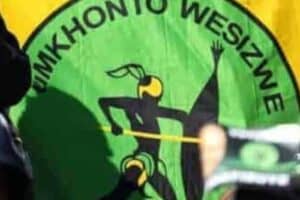The EFF’s revenge against the ANC puts SA’s transformation and political realignment into reverse gear.

The Economic Freedom Fighters’ insistence that the ANC must overnight become a radical organisation expropriating land without compensation irrespective of other factors, nationalise the SA Reserve Bank and even drop part of the Anthem to satisfy its dream of a socialist order is bound to delay the actual transformation in this country.
Already the fight between the two has resulted in the DA winning prime metros and rendered a crisis in the formation of coalition governments in Gauteng.
The EFF’s revenge against the ANC puts SA’s transformation and political realignment into reverse gear.
The EFF’s “take-it-or-leave-it attitude is not the best approach, especially if the other side owes you nothing.
The envisaged amendment of section 25 of the constitution to explicitly provide for land expropriation without compensation failed partly because of the unnecessary stand-off between the EFF and the ANC about whether land should be state-owned or be owned by the people.
ALSO READ: Land expropriation: EFF rejects 18th Amendment Bill, accuses ANC of selling out
According to ANC land subcommittee chair and Minister of Justice and Correctional Service Ronald Lamola, the ANC was prepared to meet the EFF halfway through transitional ownership.
This meant some parts of the land would have been owned by the people and others by the state – but the latter happening later.
This compromise was better than nothing. At least the land would be left in the hands of the people. Lamola believed if they were to go with the EFF proposal of wholesale state ownership, even current black land owners would have been disadvantaged or lost what they had.
This reversed the gains made in land reform. The EFF should not expect the ANC to implement radical socio-economic transformation quickly. Lamola put it quite clearly: for land reform to succeed, everybody must be on board and the process must be transparent and ensure an equitable distribution of land.
We should not forget that, historically, the ANC did not jump for radical action in its fight for freedom and democracy from its inception.
They pursued peaceful means, including making representations to white authorities and opted for defiance campaigns when that did not work.
Through soft violence, its top leadership targeted state installations – not civilian targets for sabotage. But the apartheid authorities did not listen, instead putting the “Rivonia Trialists” behind bars, including Nelson Mandela.
The fact that the armed struggle or the open use of violence only began with the launch of uMkhonto ee Sizwe in 1961, was a sign that it was the last resort. So Malema should know trying to push the ANC into taking radical positions would not help because that is not its style.
READ NOW: Failure to amend Section 25 ‘too ghastly contemplate’ says Ad hoc committee chair
The job of the EFF and the ANC was to agree on the first thing – to let the land fall in the people’s hands.
Had the EFF and the ANC been smart they should have vigorously lobbied other parliamentary political parties to speak with one voice on the need for the amendment of Section 25 of the constitution to allow expropriation without
compensation.
But the testing of each other’s power, informed by the EFF’s belief that it was running the ANC, spoilt what could have been a great arrangement to transfer land to the black majority. What a lost opportunity.
Support Local Journalism
Add The Citizen as a Preferred Source on Google and follow us on Google News to see more of our trusted reporting in Google News and Top Stories.






